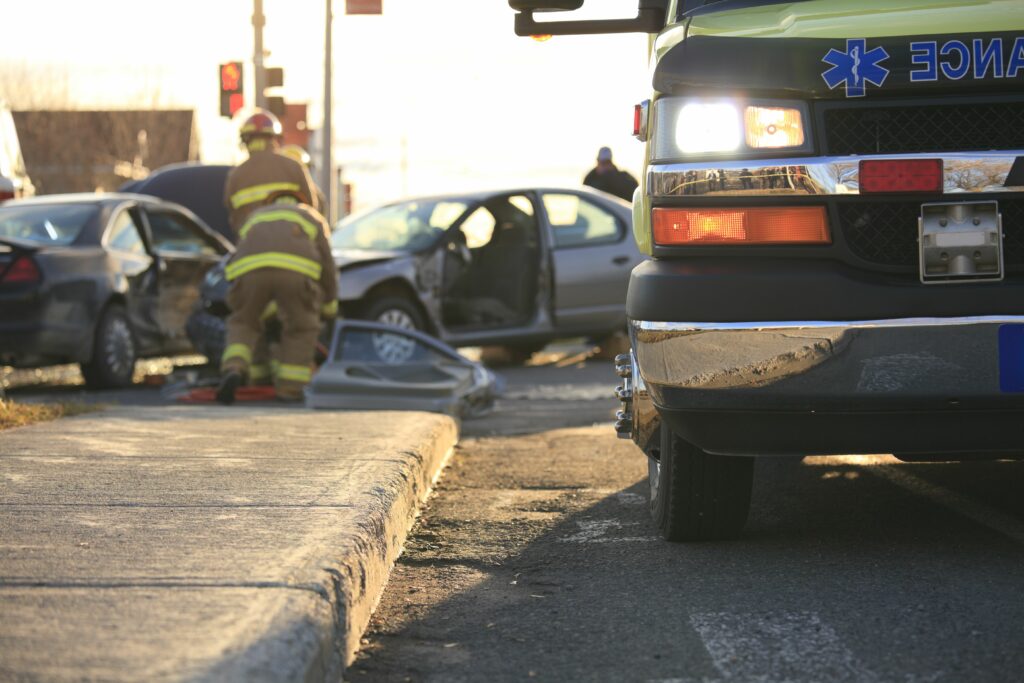When you suffer a car crash in Augusta, GA, you may suffer losses. These losses can be material or physical or both. Material losses typically refer to the damage to your property, most notably your vehicle. Physical losses are any injuries you may suffer as a result of the crash.
Property damage liability is a part of the minimum auto insurance coverage requirements as defined by the North Carolina laws. As per these laws, you must carry a specific minimum amount of insurance to cover your property losses in the event of a crash. This amount is set at $25,000.
Types of Property Damage Liability Insurance
You can choose from two main types of property damage liability insurance. These include Collision insurance and Comprehensive insurance.
Collision insurance, as the name suggests, covers you for any damage to your vehicle in the event of a collision with another vehicle or object. When you run into a collision, the insurance company is obliged to pay you the repair costs or the Actual Cash Value (ACV) for your vehicle.
Comprehensive insurance covers you for vehicular damage caused by any non-collision events such as fires, theft, falling objects and so on. This type of coverage does not apply to vehicular damage incurred in crashes.
When you carry property damage liability insurance and run into an accident, you can file a claim with your insurer. The insurer will do its due diligence and then determine whether your claim is valid. However, your property damage claim must meet certain legal requirements. One of these is the statute of limitations.
Statute of Limitations for Property Damage
The statute of limitations is the amount of time you have to file a property damage liability claim. In North Carolina, the statute of limitations for such claims is three years as defined in the North Carolina General Statutes section 1-52. This means that you have three years from the date of the crash to file this claim.
It is critically important to abide by the statute. If you fail to file a claim for your crash-related property damage, your claim is certain to meet failure. When that happens, you will not receive any damages for losses to your vehicle during an accident.
Some rare exceptions exist to the statute of limitations for property damage claims. However, such exceptions typically apply only in a very small number of cases. This is why it is always best to file your claim at the earliest following an accident.
Who Pays for Property Damage in an Augusta Crash?
An important question that drivers confront after an accident is that who will pay for the property damage, specifically the damage to their vehicle. The answer to this question is that you have two options:
- You can file with your own insurance company and invoke your coverage to pay for your vehicle damage
- Or you can file with the insurance company of the at-fault driver.
The first option has its upsides and downsides. The best thing about using your own policy to cover the loss is that you experience a speedy decision on your claim. Your insurance company is likely to pay you the repair costs or ACV without any unnecessary delays. The downside is that you may experience higher insurance rates in the future and you will be responsible for paying the deductible.
The second option is available to you only when the other driver was at fault. You can then file a claim with the insurance company of the at-fault driver. In such cases, insurers are not readily willing to accept the claim and pay up. Instead, the insurance company will conduct a thorough investigation to ascertain whether the other driver was at fault.
Based on this investigation, the insurance adjusters may then accept your claim, reject it, or propose a different amount of damages. In any case, settling the claim may take a lot longer than the first option.
Hiring a Reliable Augusta Car Accident Lawyer
If you have been in a car accident in Augusta involving property damage, it is best to consult an experienced lawyer. Here at Ted Greve & Associates, we can help you make the right decision. Our lawyers help you determine whether you should file the claim with your insurer or the other driver’s insurance company. We can also work with you to see whether repairs are a viable option or if you should seek ACV for your totaled vehicle. Reach out to us today to schedule a free session and discuss your case in detail.


